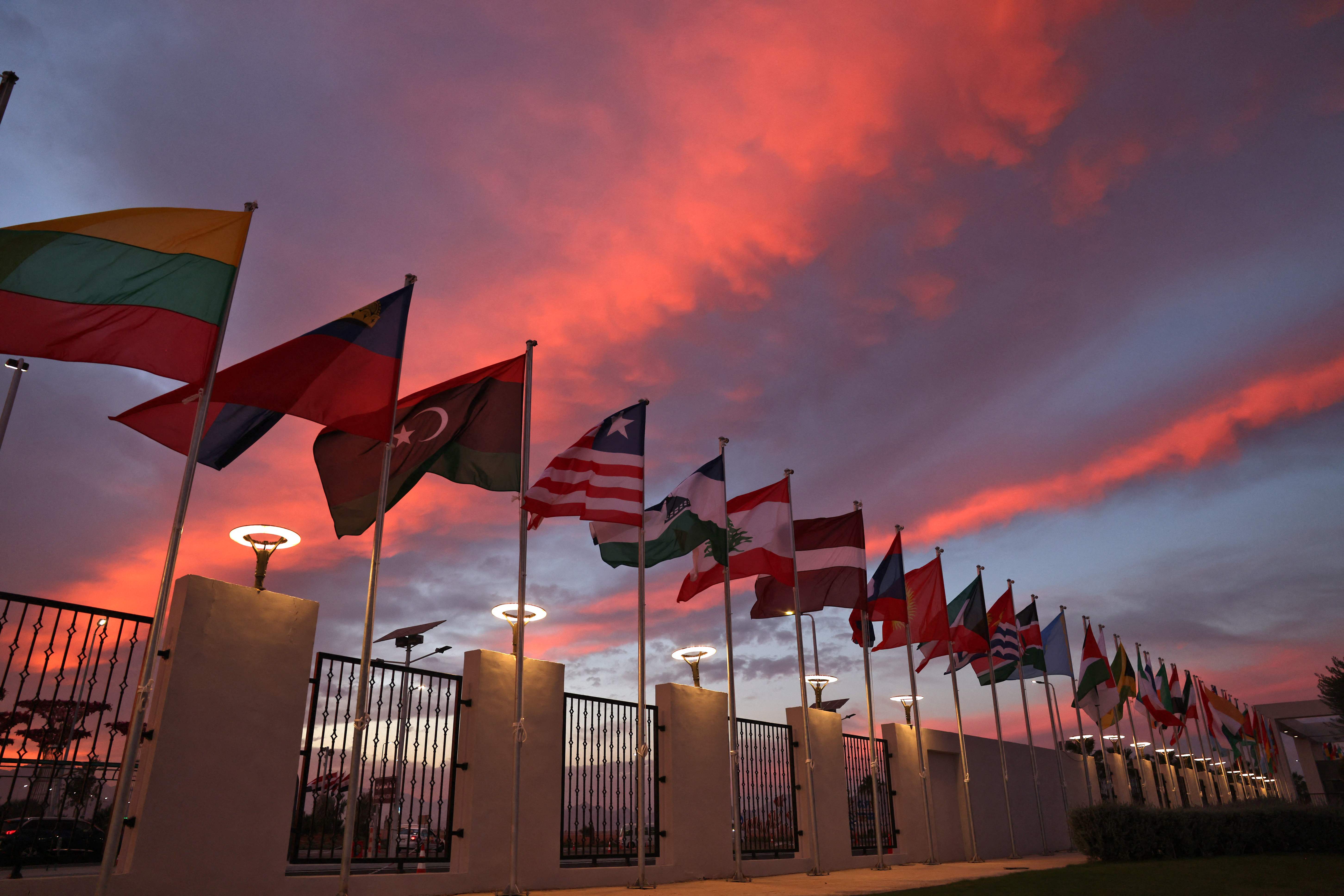Cop27’s failure on emissions undermines entire UN-helmed effort
Analysis: How long will countries want to continue their association with such damning failure? asks Harry Cockburn


Your support helps us to tell the story
From reproductive rights to climate change to Big Tech, The Independent is on the ground when the story is developing. Whether it's investigating the financials of Elon Musk's pro-Trump PAC or producing our latest documentary, 'The A Word', which shines a light on the American women fighting for reproductive rights, we know how important it is to parse out the facts from the messaging.
At such a critical moment in US history, we need reporters on the ground. Your donation allows us to keep sending journalists to speak to both sides of the story.
The Independent is trusted by Americans across the entire political spectrum. And unlike many other quality news outlets, we choose not to lock Americans out of our reporting and analysis with paywalls. We believe quality journalism should be available to everyone, paid for by those who can afford it.
Your support makes all the difference.We are now 27 summits deep into the United Nations’ annual climate change "Conference of the Parties", and the almost 200 countries represented can’t agree that the world needs to phase out fossil fuels.
It is a staggeringly poor record which casts the whole Cop process not as any kind of international cooperation achievement, but perversely, as an extremely well-publicised archive detailing decades of human failure to address the biggest threat to life on our planet.
This year in Sharm El-Sheikh, glimmers of optimism came in the form of an agreement for wealthy nations to provide financial assistance to the poorer ones already bearing the brunt of climate breakdown.
But the key takeaway from the two-week-long summit was a massive failure to find a way of agreeing real cuts to the climate-altering greenhouse gases supercharging our planet’s runaway warming problem.
Oil-producing countries and high-emitting nations weakened or entirely vetoed commitments not just to ending fossil fuel usage, as we urgently need to do, but even to the idea of phasing them out at all.
This hasn’t just let these nations and unscrupulous governments elsewhere off the hook, but has also kicked the climate can so far down the road it has disappeared into a shimmering heat haze.
The net result of almost three decades of negotiations is what? Global emissions are at a record high, and are still climbing.
The core problem has not been dealt with.
After the optimism inspired by Cop21 in Paris in 2015, at which delegates made a commitment to cut emissions in order to keep global temperature rises to 1.5C above the pre-industrial era, momentum has not just stalled, it is beginning to go backwards.
Governments are hopelessly out of their depth on tackling their dependency on fossil fuels, and their looming net zero targets are not within sight.
There are no leading economies which have even begun to start taking the high level of economic and social recalibration required.
Responding to the closure of the summit, Friends of the Earth described the outcome as a "disaster", Oxfam said it was "deeply concerned" about the failure to agree fossil fuel reductions, the UK’s Green Party said the negotiations amounted to "a backward step".
The Grantham Institute’s Bob Ward described the outcome on emissions as "deeply disappointing".
This damning catalogue of incompetence now risks fatally undermining the whole Cop effort.
Will governments want to keep being associated with such a massive level of failure?
Instead of eager heads of state making a show of force for the future of our species, the most eager attendees were fossil-fuel lobbyists who arrived in record numbers in order to keep pushing their poisonous products.
Meanwhile, some heads of state – most notably new UK prime minister Rishi Sunak – had to be strong-armed into even turning up at all. It is hardly a surprise scant progress was made in such circumstances.
By its nature, international cooperation between almost 200 of the world’s countries is a clumsy affair, so we should not be surprised that some years less progress is made than other years.
But almost 30 years of negotiations are quite obviously not delivering the goods.
The structure of the process, in which a handful of oil-dependent governments have so much power to thwart the success of the project, now surely requires reconsideration.
The next UN climate summit, Cop28, is being held in Dubai, where oil was first discovered 56 years ago, in 1966. Since then it has become the wealthiest city in the Middle East.
How likely is it that it will be here humans finally agree to end the scramble for fossil fuel money?
Without radical action of its own, the world’s biggest climate summit remains on course for increasing irrelevance.
Harry Cockburn is environment correspondent at The Independent.
Join our commenting forum
Join thought-provoking conversations, follow other Independent readers and see their replies
Comments